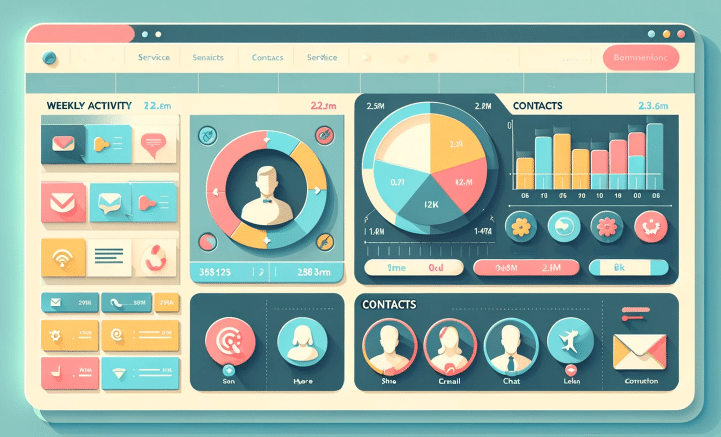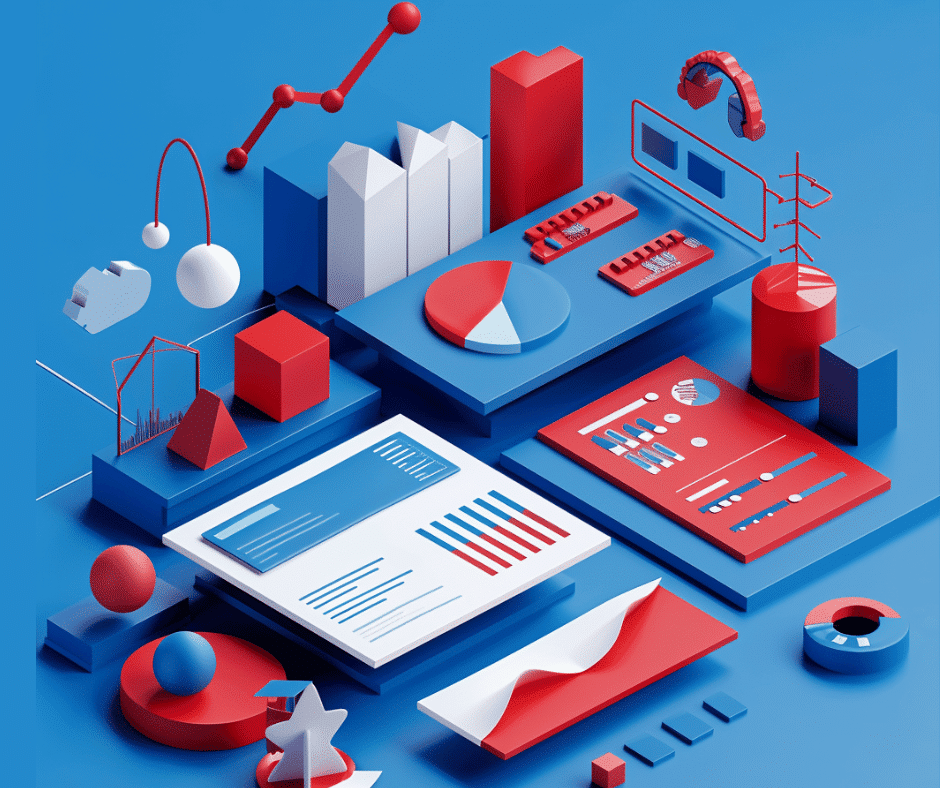
Want to know more about AI?
Check out our keyword guide to help.
.What Is the Role of AI in Sales and Marketing?
AI’s role in sales and marketing is multifaceted, enhancing efficiency and personalisation while offering actionable insights. It’s not about replacing human effort but augmenting it, allowing teams to focus on higher-value activities.
Sales, in essence, is the direct process of selling a product or service to the customer, focusing on individual transactions to meet targets and generate revenue. Marketing, on the other hand, casts a wider net.
It’s about understanding market trends, crafting compelling narratives, and creating demand for the products or services offered. While sales zeroes in on the act of closing deals, marketing sets the stage for those transactions by building brand awareness and cultivating customer interest. Despite their distinctive functions, sales and marketing are entwined; marketing strategies are designed to facilitate sales, and sales outcomes inform marketing effectiveness. Together, they create a cohesive journey from brand discovery to purchase, which is now being revolutionised by AI, enhancing precision and personalisation at every touchpoint.
That’s why we cover both sales and marketing in this blog post.
AI offers many benefits for sales and marketing teams. Here’s a small selection of them:
- Automate Repetitive Sales Activities: AI automates mundane tasks, allowing sales teams to focus on relationship-building and strategic planning.
- Using AI for Sales Efficiency: AI-driven tools enhance ROI by enabling targeted marketing and efficient resource allocation.
- More Actionable Insights for Sales Reps and Beyond: AI gives sales teams the insights needed to exceed sales goals through enhanced customer interactions and optimised operations.
The Impact of AI So Far on Marketing and Sales Processes
AI has revolutionized sales and marketing processes, making them more efficient and data-driven. The sales process, from lead generation to closing deals, benefits immensely from AI’s ability to automate repetitive tasks, provide deep insights, and personalise customer interactions.
How to Unlock Your Potential with AI-Driven Marketing
Integrating AI into your marketing strategy can significantly improve lead qualification and targeting efforts, ensuring that marketing supports sales effectively.
How Does AI Assist in Lead Generation and Qualification?
AI enhances lead generation and qualification through advanced analytics, predictive insights, and automated interactions, ensuring a focus on the most promising prospects. By leveraging machine learning algorithms, AI can sift through vast datasets to identify patterns and signals that human analysts might overlook, enabling the identification of high-quality leads with a higher likelihood of conversion. Furthermore, AI-driven systems can dynamically adjust marketing strategies in real time, optimizing campaigns to target potential customers more effectively based on their behaviour and preferences

Looking for Assistance Adopting Artificial Intelligence Within Your Own Company?
At Tianyi Consulting, we’re at the cutting edge, helping science and technology firms leverage AI for growth, efficiency, and streamlined operations. Request our whitepaper to learn how AI can transform your sales and marketing strategies in 2024 and beyond.
Terms
The first step for sales teams to implement AI is to demystify AI. Here’s our breakdown of some of the terms.
Generative AI: Generative AI refers to a type of artificial intelligence technology that can create new content, ranging from text and images to music and code, based on its training on large datasets.
Conversational AI: Conversational AI is a branch of artificial intelligence that enables computers to understand, process, and respond to human language in a natural and contextually relevant manner, often used in applications like chatbots and virtual assistants.
Natural Language Processing (NLP): Natural Language Processing is a field of artificial intelligence that focuses on the interaction between computers and human language, enabling machines to understand, interpret, and respond to human language in a useful and meaningful way. For sales AI, NLP helps to carry out sentiment analysis.
Sales technology: This encompasses digital tools and systems used in the sales process, focusing on streamlining tasks, enhancing customer interactions, and analyzing data to drive sales efficiency and effectiveness.
